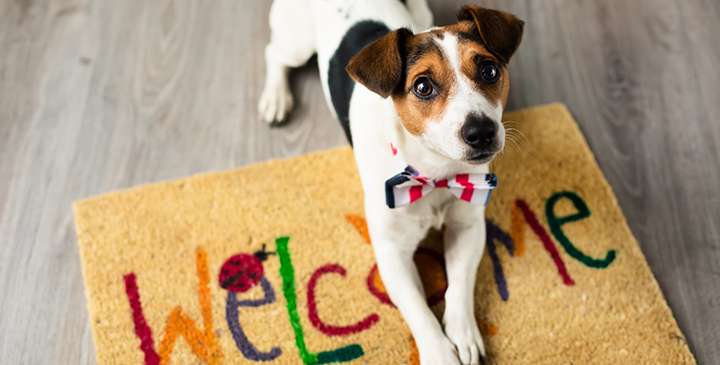Choosing the perfect pet can be a confusing experience. What breed or physical attributes to select, how much to spend, how to determine if your new pet will be healthy?
As a veterinarian I receive these questions a lot, from friends. But in my clinic I’m generally seeing owners with the new pet once they’ve already tackled these tough decisions. Sometimes these new pet parents ‘confess’ they based their decision on impulse or something that was perhaps not the best logic.
Regardless of how you choose your pet, they become a part of your family for the rest of their life! And there is no right or wrong way to choose a pet. Or foolproof!
Depending on your preference and expectations there are certain sources for pets that will better meet your needs. Some of the different options include:
Breeders
Pets from breeders are intended to have predictable physical and personality traits. Different types of breeders have different goals.
The goal of some breeders is to maximize profit by producing as many babies as possible, (on a large scale this might be a puppy mill). When profit is the goal, health and welfare of pets may not be optimum.
Some individuals breed their pet (unintentionally or on purpose) because they feel they have a great pet, one who would make nice babies and benefit from the experience. Typically these pets are well cared for, but the breeders may not be very knowledgeable. Mate selection is typically not based on a pedigree (family tree). Pets are unlikely to have genetic disease screening and without a pedigree the physical, health and behavioral traits of the babies may be not be predictable. These breeders are often referred to as back-yard breeders.
Designer breed breeders intentionally produce mix breed puppies or kittens, by selecting parents with traits that would be ‘improved’ upon by mixing with the other breed. Several common examples are cockapoos (poodle x cocker spaniel), labradoodles (poodle x Labrador retriever) and puggles (pug x beagle). The idea that pets will be healthier than purebreds and still have predictable appearance is not always the case. These pups may come with a big price tag, but not necessarily genetic testing or pedigrees.
Pedigree breeders have litters with the intention of keeping the breed ‘true’ and improving upon it. Breeders may focus on improving performance (for example hunting dogs or sled dogs), conformation (appearance), and minimizing genetically linked diseases. They rely on expertise, knowledge of the breed, and the pedigree (family tree) to chose parents. Their babies are often registered with a breed club (Canadian kennel club etc), and the parents have often obtained championship titles.
RESCUE
Many non-profit organizations exist that rescue unwanted pets. Some, like the OSPCA (Ontario Society for Prevention of Cruelty to Animals), are provincially mandated and investigate crimes against animals, in addition to rescue and adoption services. There are numerous private rescue groups, some that focus on a particular breed, like Bassett Hound Rescue of Ontario, or geographic area, like CK Animal Rescue. Rescuing a pet can be very rewarding, especially when getting an older pet is desirable. But sometimes health and behavioral concerns can accompany these guys.
RETAIL
Some pet stores still sell puppies and kittens. There is general distaste for this among the public as the source of the pets are often not known and suspected to be puppy mills. Also many of these pet purchases are impulsive and accompanied by buyer’s remorse! – who can resist a puppy in a cage?!!
Although I know many sweet, healthy pets that were purchased at pet stores it is important to clarify they are not a rescue! Some non-profit organizations will work cooperatively with retail pet stores to show case their pets available for adoption. But this is very different than purchasing a pet from a pet store.
Before you pick out your pet, some important decisions to make include:
Do you have a preference for baby, young adult or mature pet?
How much time can you dedicate to grooming, exercise and training?
Is there a particular appearance or personality you are looking for?
What sort of activities do you envision doing with your pet?
These questions can help you narrow down the breed of dog/cat that would make a good fit for your lifestyle. Try to meet some pets belonging to that breed if possible. Take a list of questions to rescue group or breeder and be prepared to interview and be interviewed. It is a good sign if they are more interested in how you will care for the pet than how you will pay for the pet! Some helpful websites to reference are the Canadian Kennel Club www.ckc.ca, and the Canadian Cat Association www.cca-afc.com. An easy web search will generate a list of questions to ask breeder or rescue group, based on breed.
Book a pre-purchase appointment with your veterinarian. These appointments should involve the whole family, prior to getting the pet. Not only is your veterinarian an expert on pet health and behavior, but they see first hand everyday the benefits of matching the ideal pet and owner, and some easy pitfalls to avoid when selecting a pet.
Every different source has its own pros and cons. I have had great experiences getting my own pets from a variety of places, humane society, private rescue and pedigree breeder. The best source really depends on your expectations and criteria for a pet. Make sure you ask lots of questions. Ask to meet other pets on site, not just the one for sale. Get references for people that have gotten pets from the same place to hear about their experiences. Trrrry to not be impulsive. It’s so hard to set down that adorable puppy, that is licking your nose, but be sure you’re making a decision on a pet that will fit your lifestyle before caving in! Most importantly trust your gut! If you get a creepy feeling about a situation, walk away!



